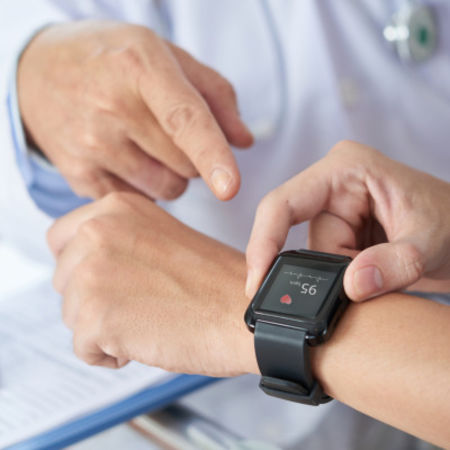Wearables such as Fitbit watches and bands are empowering people to better monitor their health and fitness. These mHealth devices are a goldmine of health-related information – from heart rate and sleep patterns to level of physical activity, as well as mood and mental health.
You might also like:Google Acquires Fitbit
Researchers in the UK are leveraging this growing community of users hoping that, by parsing wearable data, they can find a way to detect COVID-19 infection even before symptoms appear. In fact, more users of wearable devices are enjoined to participate in the ‘COVID-Collab’ study to enhance capability of researchers in understanding key concepts and factors, including:
- Reliability of wearable devices as digital tests for COVID-19 and other respiratory illnesses.
- Which symptoms can be used as early predictors of infection.
- How contagious the coronavirus is.
- Impact of various social distancing measures on transmission rate in the UK.
The ‘COVID-Collab’ research team at King’s College London has developed the Mass Science app that allows study participants to connect wearables and share data such as heart rate, activity, mood and sleep. Through the app, participants can also provide information on COVID-19 symptoms and diagnostic results, if any.
Data collected via the app will enable the ‘COVID-Collab’ researchers to make a comparison with baseline data of users – ie, differences in the data during the time of reported illness compared with their normal healthy periods. Results of comparative data analyses can guide the research team in developing a potential digital test for early warning signs of COVID-19 infection.
The ‘COVID-Collab’ researchers are funded by the National Institute for Health Research (NIHR) Maudsley Biomedical Research Centre (BRC). If their study can validate signals of illness – from the data of participants who report in-app having tested positive for COVID-19 or experience common symptoms – then this could form the basis of continuous monitoring system, which potentially can help prevent further spread of the virus.
“When you indicate you are experiencing symptoms in the app, we'll be able to look at your data before, during and after this period and compare it to your healthy baseline data," said Dr Amos Folarin, Software Development Group Leader at the NIHR Maudsley Biomedical Research Centre, who is leading the ‘COVID-Collab’ study. "Passive monitoring of symptoms coupled with movement data could be very useful as lockdown is cautiously lifted across the country."
With over 8 million regular wearable device users in the UK, data gathered from these devices can provide important insights on "our understanding of disease onset and disease trajectories," according to Professor Richard Dobson, Head of Department of Biostatistics and Health Informatics at the NIHR Maudsley.
The professor went on to say that the COVID-Collab study could help strengthen regional disease surveillance and support a safe lockdown release.
Source: King's College of London
Image credit: DragonImages via iStock



























